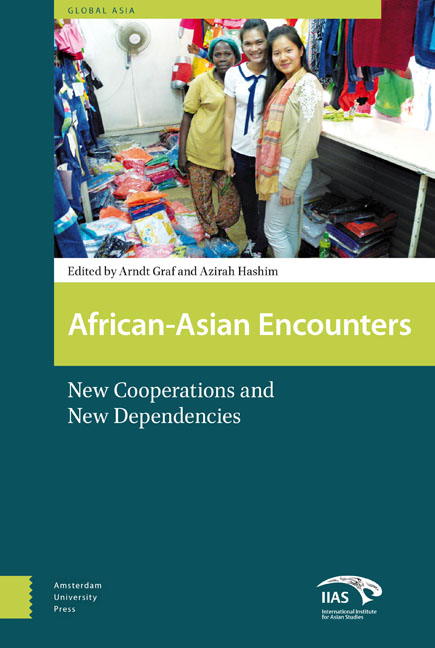3 - Does New Sino-African Cooperation Create New Dependencies?: The Case of Higher Education
Published online by Cambridge University Press: 28 January 2021
Summary
Introduction
It is a widely held view that new and contemporary African-Asian interactions on the economic, political, social, and cultural level are not only opening up new opportunities for Asian countries, but also for their African counterparts. This chapter aims to critically engage with this line of argument as it looks at probably the most prominent form of Sino-African cooperation on the social and cultural levels, which is the Confucius Institute project. Using Confucius Institutes (CIs) in South Africa as a case study, this chapter will argue that this new form of cooperation not only presents opportunities for the partners involved, but also creates new dependencies due to the unique organizational structure of these institutes as joint ventures between a Chinese and a local entity in the field of higher education. This chapter further argues that these dependencies may be more severe on the African continent due to the unique situation CIs are facing there in the sense that Africa has no tradition of academic engagement with China.
After a brief outline of Sino-African relations the first part of this chapter proceeds with a conceptual outline as it first introduces the terms cooperation, dependency, and opportunity and second, links them with the notions of foreign aid, soft power and cultural diplomacy, all of which are of interest for students of Confucius Institutes in Africa. The second part then focuses on China's foreign aid to Africa and the case of Confucius Institutes. The conclusion puts the pieces of the preceding parts together and links them to the overall argument that Confucius Institutes provide both opportunities for the partners involved, but at the same time also potentially create new dependencies on the part of the African stakeholders involved in this project.
China in Africa
Nowadays it is a truism that China and the rest of the world are interconnected in almost every aspect of international affairs. The growing connections between China and other countries have made China and the rest of the world interdependent. In 1978 the Chinese leadership under Deng Xiaoping initiated the Reform and Opening-up policy and since then China and the world have become more and more interwoven, not only economically but also in political, social, and cultural terms.
- Type
- Chapter
- Information
- African-Asian EncountersNew Cooperations and New Dependencies, pp. 81 - 102Publisher: Amsterdam University PressPrint publication year: 2017

